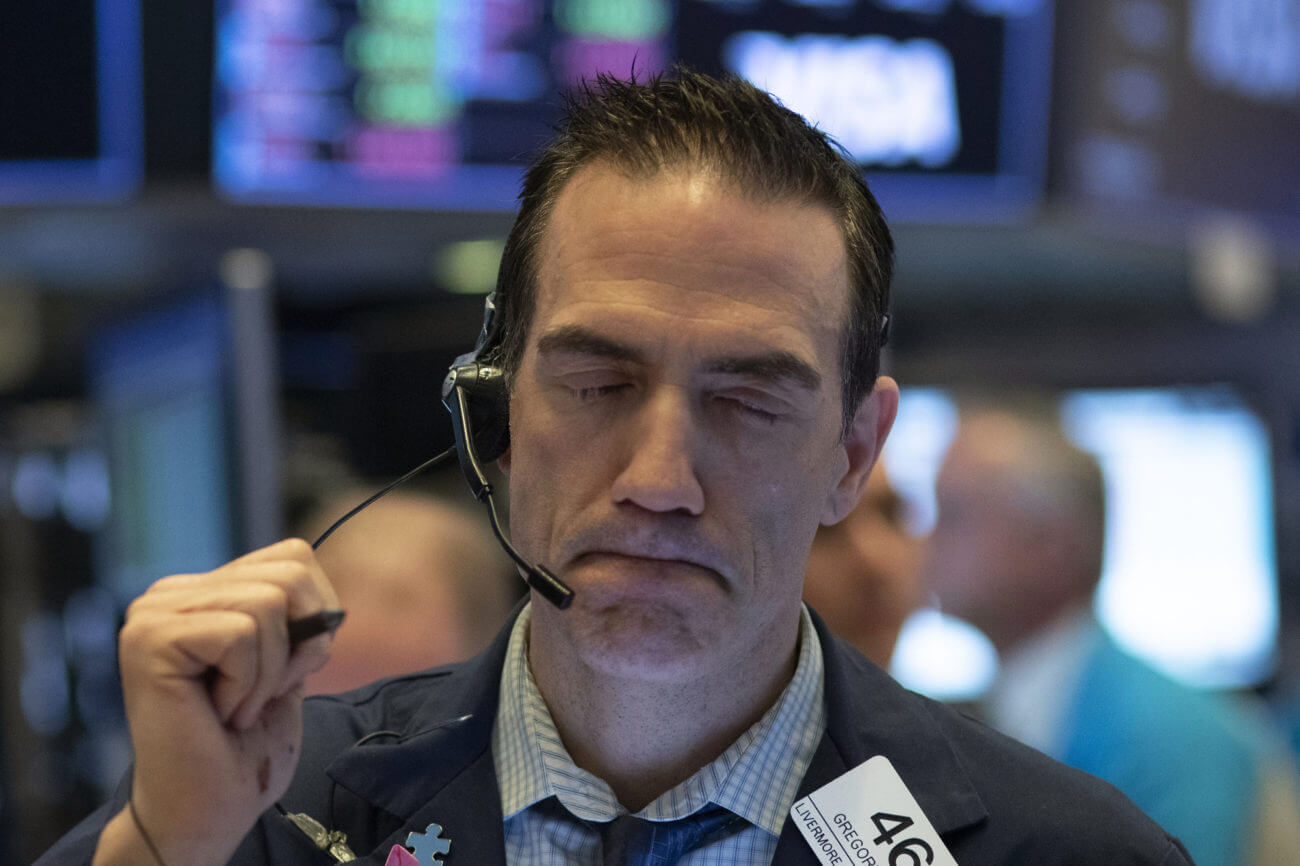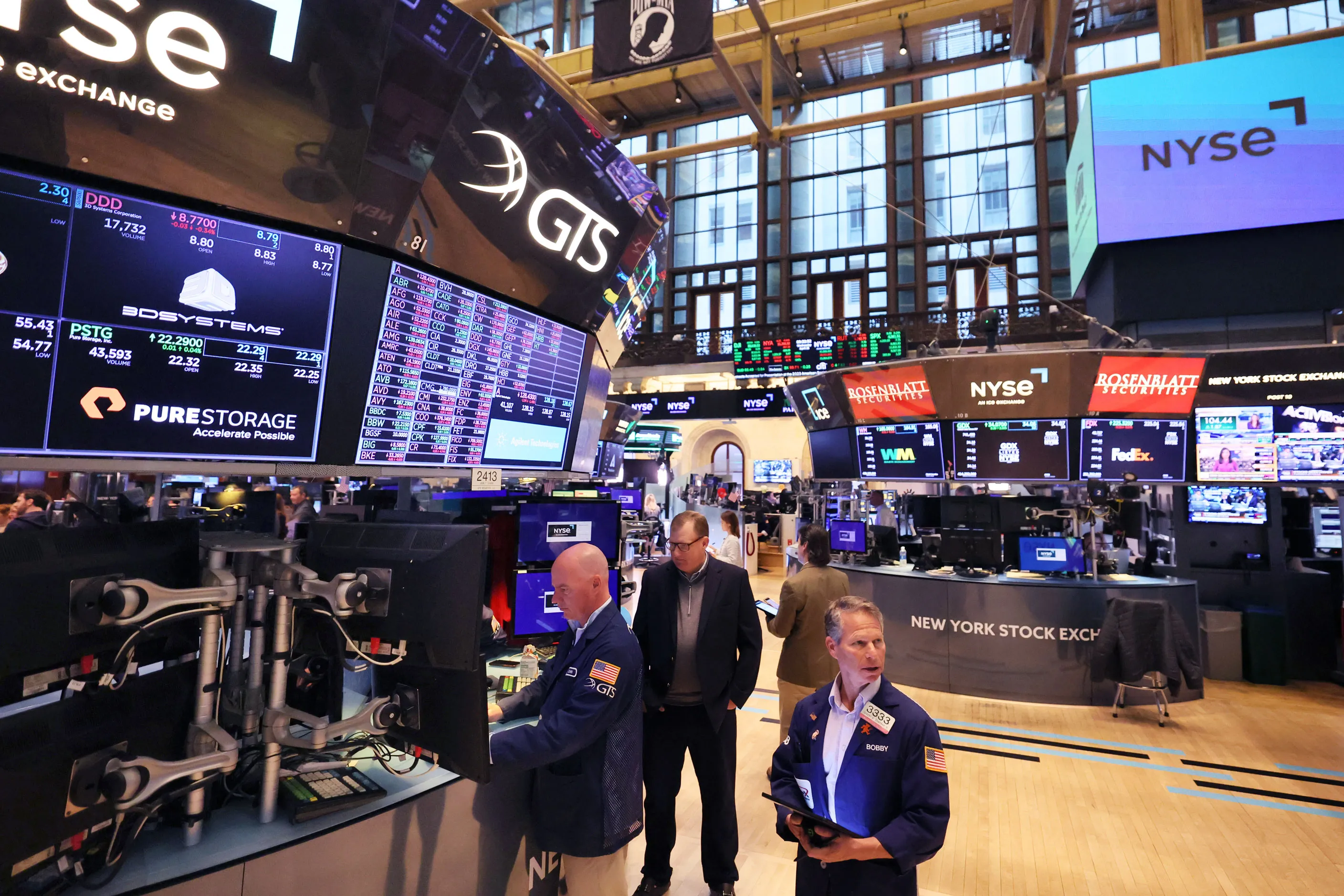Market Rebounds Amid Heightened Volatility: What Investors Should Know
The recent market fluctuations have left investors wondering if they should hold on to their investments or make some adjustments to their portfolios. With the ongoing global economic uncertainty, the world of finance has become increasingly volatile. In this article, we will delve into the current market trends, the factors that have contributed to the heightened volatility, and what investors should know to navigate this challenging period.
The past few months have seen a significant decline in the stock market, with many investors experiencing losses. However, in recent weeks, the market has begun to rebound, with some sectors experiencing significant gains. This sudden change in market direction has left many investors confused and unsure of what to do next. To better understand the current market situation, it is essential to examine the factors that have contributed to the heightened volatility.
Key Factors Contributing to Market Volatility
Several factors have contributed to the increased market volatility, including:
• Interest Rate Changes: Central banks around the world have been adjusting interest rates to manage inflation and stimulate economic growth. These changes have had a significant impact on the stock market, leading to increased volatility.
• Global Economic Uncertainty: The ongoing COVID-19 pandemic and trade tensions between major economies have created uncertainty and instability in the global economy.
• Geopolitical Tensions: Rising tensions between countries have led to increased uncertainty and volatility in the markets.
• Market Sentiment: Investor sentiment has also played a significant role in the recent market fluctuations. Fear and anxiety have led to increased selling, while optimism has led to buying.
What Investors Should Know
To navigate this challenging market period, investors need to stay informed and adapt to changing market conditions. Here are some key things investors should know:
Understanding Market Volatility
Market volatility is a normal part of the investing experience. It is characterized by rapid and unpredictable changes in the value of assets. Understanding the causes of market volatility and how to manage risk are essential for investors to make informed decisions.
Diversification Strategies
Diversification is a key strategy for managing risk in a volatile market. By spreading investments across different asset classes, sectors, and geographic regions, investors can reduce their exposure to any one particular market or sector.
Rebalancing Portfolios
Rebalancing portfolios is an essential part of managing risk in a volatile market. As market conditions change, investors need to reassess their portfolios and make adjustments to ensure that they remain aligned with their investment objectives.
Emerging Trends and Opportunities
Despite the challenges posed by market volatility, there are still emerging trends and opportunities that investors should be aware of. Some of these trends include:
• Sustainable Investing: Investors are increasingly turning to sustainable investing, which involves investing in companies and assets that promote environmental and social responsibility.
• E-commerce and Digital Transformation: The COVID-19 pandemic has accelerated the shift to e-commerce and digital transformation. Investors should be aware of the opportunities and risks presented by these trends.
• Technological Advancements: Technological advancements are transforming industries and creating new opportunities for investors. Investors should be aware of the latest technological developments and their potential impact on the market.
Market Outlook and Predictions
As the market continues to navigate the challenges posed by global economic uncertainty, many analysts are predicting a mixed outlook. Some predict a continuation of the current trend, while others believe that the market will experience a period of consolidation.
Short-Term Market Predictions
In the short term, investors can expect to see continued market fluctuations. The ongoing COVID-19 pandemic and trade tensions between major economies will continue to create uncertainty and volatility.
Long-Term Market Predictions
In the long term, investors can expect to see a continuation of the current trend towards sustainable investing and e-commerce. Technological advancements will also continue to transform industries and create new opportunities for investors.
Conclusion
The recent market fluctuations have left investors wondering what to do next. To navigate this challenging period, investors need to stay informed, adapt to changing market conditions, and make informed decisions about their portfolios. By understanding the factors that have contributed to market volatility, diversifying portfolios, rebalancing investments, and being aware of emerging trends and opportunities, investors can position themselves for success in this unpredictable market environment.
Final Thoughts
Investing is a journey, not a destination. By staying informed, adapting to changing market conditions, and making informed decisions, investors can navigate the challenges posed by market volatility and achieve their long-term financial goals. Whether you are a seasoned investor or just starting out, it is essential to stay focused, stay informed, and stay disciplined in your investment approach.
Mara Corday
Hisashi Ouchi Real Hospital Po
Maureen Bates
Article Recommendations
- Alex Landi
- Connieenio Case Pos
- Who Isteve Harvey Voting For
- Arielle Kebbel Husband
- Brittany Force Relationship
- Aishah Hasnie No Makeup
- Gloria Borger Health
- Esownload
- Alina Habba Net Worth
- Leland Chapman



